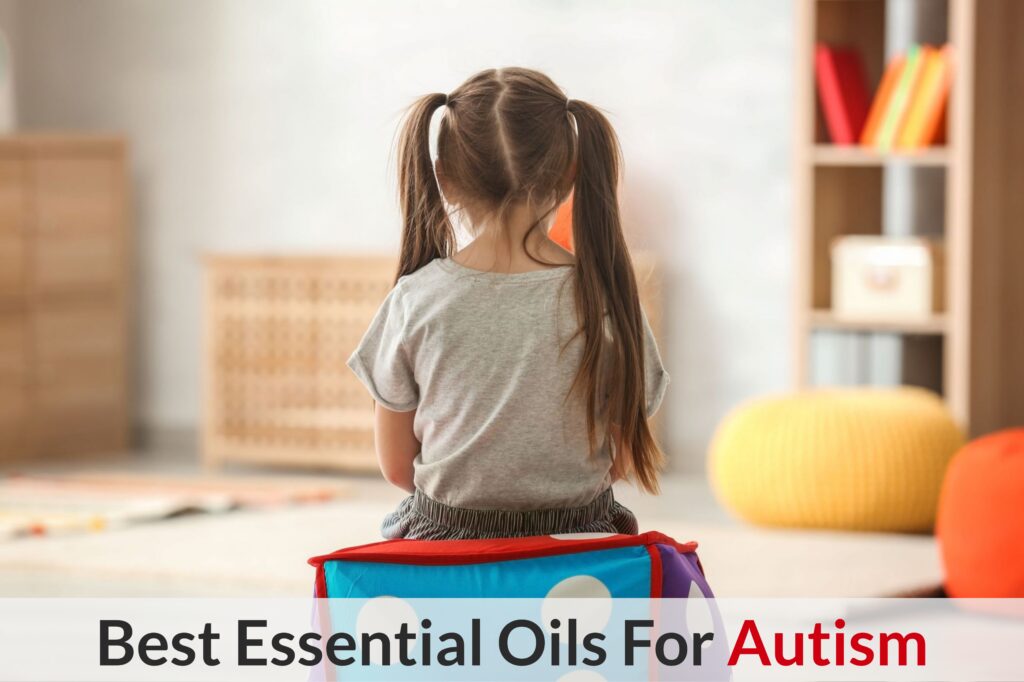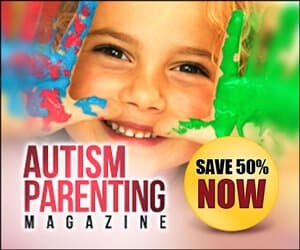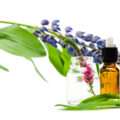Every year, the World Autism Awareness Day is on April 2nd whereby autism organizations around the world celebrate the day with unique fundraising and awareness-raising events in recognition of people living with autism.
Hi folks, always great to see you back again and hungry for some more knowledge. Today, we’ll be talking about a lifelong condition that affects millions of children and parents worldwide. According to the Centre for Disease Control and Prevention, the prevalence of autism is estimated to be at 1 in every 68 children in the US alone. This includes 1 in about 40 boys and 1 in about 190 girls.
Being a lifelong disability, most parents start noticing the symptoms of autism within the first two years of their child’s life. I can’t stress enough just how important early diagnosis and treatment is for autism. Getting a timely and comprehensive assessment not only helps the autistic person and their friends/family/colleagues understand what to expect, but it also paves the way for access to much-needed services and support.
That’s why I decided to gather as much information as I can and support my readers on their long but adventure-filled journey. In today’s segment, we’ll be looking at what exactly autism is and how it presents itself. I’ll also take you through the different symptoms and causes that contribute to the developmental disability.
It’s not all doom and gloom guys, there are also some incredible strengths that come with being autistic, and we’ll look at those too. And as always, Olivia’s got all the 411 on how to manage the disorder and some practical remedies to help make the life of your loved ones easier. So stick around guys, because I’ve got all this and more lined up for you in Olivia’s mother of all guides to everything you need to know about autism.
What Is Autism?
I know just how important it is to get accurate information, so I always try to call in specialists whenever I can. But before I call in our site’s resident doctor to bore you with some medical jargon, let me give it as best a shot as I can for the sake of our younger readers struggling to understand the condition.
Olivia: Simply put, Autism is a lifelong developmental disability that affects how people perceive the world around them as well as how they interact with others. This means that an autistic person will hear, see, feel, and process the world in an entirely different way from other people. While the condition affects people in different ways, most autistics tend to have learning disabilities, communication issues, social impairments, repetitive behaviors and other health concerns. Unfortunately, autism is not an illness or disease that can be cured; if you are autistic, it’s for life. The good news is that it’s more than possible to manage, overcome and live with the disorder.
Ph.D., MD, Autism, ASD & Asperger Specialist: Thank you Olivia, that was quite the accurate and comprehensive definition. I’ll just expound a bit more on it. Also known as Autism Spectrum Disorder (ASD), Autism is a neurodevelopmental disorder characterized by symptoms like impaired social interaction, diminished verbal and non-verbal communication, rigid and repetitive behavior as well as other unique strengths and differences. Due to this wide range of symptoms that we will look at later on, this condition is now referred to as autism spectrum disorder (ASD). This term covers a vast spectrum of skills, symptoms and different levels of impairment. As Olivia had mentioned, autism has no cure; it’s a lifelong disorder that could range from a minor handicap that limits normal functionality to a severe disability that requires constant institutional care. But there are plenty of ways to prevent and manage autism. But before we get to that, I’d like to list out the symptoms and causes of autism first.
Signs And Symptoms Of Autism
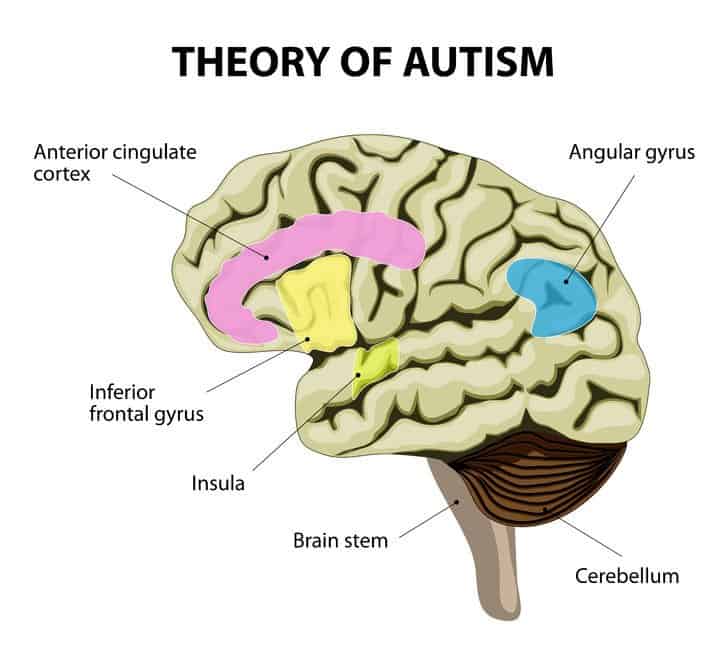
autism
Autism is a neurodevelopmental disorder that almost always appears during infancy or childhood before a child reaches the age of 3 years. Generally, it follows a steady, gradual course throughout the person’s life without remission. People with autism may be adversely impaired when it comes to certain aspects of their daily lives. However, they are also normal and even superior in other ways.
The early signs and symptoms usually begin from six months old and become established by 2 to 3 years. After that, they tend to continue throughout adulthood. Now, autism is not distinguished by a single symptom. Instead, it is characterized by a triad of symptoms (hence the term autism spectrum disorder). These symptoms include:
A: Social Development and Communication Issues
- Autistic infants display less attention to stimuli and slower response
- Less eye contact and inability to express themselves
- Delayed or lack of speech (40% of autistic people never learn to speak)
- Failure to establish friendships with peers
- Significant difficulty developing nonverbal communication skills (i.e. facial expressions, body posture)
- Lack of interest or empathy
- Difficulty understanding perspective, jokes, sarcasm or humor
- Deficit in joint attention
B: Repetitive Behavior
This is the most common and widely known symptom of autism spectrum disorder. People with the condition can display various forms of restricted or repetitive behavior. These behaviors are categorized as follows:
- Compulsive Behaviors – These encompass all the time-consuming actions that an autistic person feels compelled to repeatedly and according to a set of rigid rules so as to help relieve anxiety such as hand washing, checking things, stacking items or placing objects in a certain way.
- Stereotyped Behaviors – These are the repetitive movements mostly associated with ASD such as hand flapping, head rolling, body rocking and other repetitive gestures.
- Ritualistic Behavior – Also known as sameness, this implies to unvarying pattern of regular or daily activities such as the same menu, same dressing ritual, same route and heavy resistance to change.
- Restricted Interests – Autistic people usually display fixations and interests that are abnormal in intensity of focus or theme. For example, they may become preoccupied with a single toy, a TV show, trains, computers, music, trading cards, video games, or even rubbish collection.
- Self Harm – These include all behaviors aimed at inflicting harm on oneself such as skin-pricking, eye-poking, hand biting, head banging, among others.
C: Other Symptoms
Of course, we couldn’t wind up without mentioning some of the symptoms which are independent if the diagnosis.
- About 10% of autistic individuals display unusual abilities ranging from splinter skills like incredible memorization of trivia to extraordinarily rare talents of prodigious autistic savants.
- Many autistic individuals show superior skills when it comes to perception and attention compared to the general population.
Causes Of Autism Spectrum Disorder
It has been long presumed that the common cause for autism spectrum disorder could be found at the genetic, cognitive and neural levels. However, the genetics of autism are incredibly complex. What’s more, it’s unclear whether ASD is caused by rare multigene interactions or vast mutations. But recent studies reveal that while genetics and hereditability might play a huge role, some environmental factors could be at play too.
Some cases of autism have been strongly associated with exposure to air pollution (especially heavy metals) during pregnancy. Other environmental factors that have been claimed to cause autism include exposure to infectious diseases such as rubella, diesel exhaust, solvents, phenols used in plastics, phthalates, pesticides, vaccines, brominated flame retardants, alcohol, cigarettes, cocaine, illicit drugs, prenatal stress, among others. But just like the genetic factors, no real evidence has been found to substantiate these claims. That wraps up the causes of autism for now, but I’ll keep you updated as the research progresses.
Prevention, Treatment, And Management Of Autism

Preventing Autism
The steps that one can take to prevent autism should all be followed during pregnancy. For the genetic causes, there’s not really much that the parents can do about it. However, it’s recommended that you avoid as many environmental factors as possible. This includes keeping away from polluted areas, avoiding intake of alcohol, keeping away from cigarettes and illicit drugs and observing all your prenatal checkups.
Treating and Managing Autism
As mentioned earlier, autism is a lifelong disorder that develops gradually. But although there is no known cure for autism, there’s no shortage of ways to manage it. Early behavioral and speech interventions can help kids with autism gain communication skills, social skills, and even self-care. So while not many children with autism live independently after reaching adulthood, a small percentage of them are able to.
Now, the primary goal of treating people with autism lies in not only increasing their quality of life and functional independence, but also lessening the family’s distress. Generally, higher IQs are related with better responsiveness to treatment and significantly improved outcomes. However, no single treatment is ideal for each and every person. They are frequently tailored to the child’s specific needs. We’ll start off with a few of the most popular interventions.
a) Education
Educational interventions have yielded the best results so far for people with autism. By educating both the families of the affected persona and the autistic person too, you are able to equip them with the knowledge they need to know what to expect and how to deal with it. What’s more, improving the intellectual performance of people with autism has been linked to better treatment responsiveness.
b) Medication
Looking at the current medical treatments for children with autism, one can’t help but shed a tear. Most of the drugs used to treat the symptoms of autism should be implemented only as a last resort even for adults.
Unfortunately, more than 55% of the children in US diagnosed with ASD are stringed with a lengthy prescription of anticonvulsants and psychoactive drugs that carry adverse side effects. The most common classes of drugs prescribed for autism include stimulants, antidepressants, and antipsychotics such as aripiprazole and risperidone which claim to treat irritability, sleeplessness and repetitive behavior. But in essence, all these really do is drug the autistic person until they can’t do certain things. What’s more, no known medication has proven to relieve the core symptoms of social and communication impairments.
c) Essential Oils for Autism
Straight from the onset, millions of parents with autistic children are always looking for healthier and more natural ways to help their children. ASD is a lifelong condition after all; and the last thing you want is to straddle your child with a never-ending prescription of hormone-disrupting, psychoactive drugs. Trust me, the minimal amount of symptom relief they offer is not worth the devastating side effects.
Essential oils, on the other hand, do a whole lot more good for the symptoms without virtually any ill side effects. Essential oil therapy is so much fun that it doesn’t even feel like treatment or medication. And indeed, it’s a way of life that everyone ought to embrace. Some of these oils contain powerful terpenes and numerous chemical constituents that closely resemble human blood in that they both contain oxygen, nutrients, and immune boosting components. In other words, Mother Nature’s own life force in the form of highly concentrated oils.
These are just some of the properties that make essential oils ideal for helping with a myriad of ASD associated symptoms. Not only do these oils contain aromatherapeutic properties that help people with autism to relax, but they also possess medicinal and healing properties that help oxygenate and repair the brain for improved motivation, memory, learning, and behavior. I could literally go on forever about the benefits of essential oils for Autism (Seriously). But I’ll name just a few, especially for new parents dealing with an autistic infant.
- Essential oils are known for their ability to boost the immune system and support healthy body functions
- Soothe the digestive system
- Expand the capacity to focus and concentrate
- Enhance massages and body rubs
- Relieve sore muscles and general body discomfort
- Help relax and cut down on stress levels
- Promote peace and wellness
- Provides a safe and non-toxic way of cleaning and purifying the home
- Helps achieve healthier skin and great hair
As always, the list of essential oils that can lend a helping hand is literally in the hundreds of thousands. So I’ll just select some of the most popular and lauded essential oils for ASD and a couple recipes to help you put them to good use.
Top 5 Essential Oils For Autism
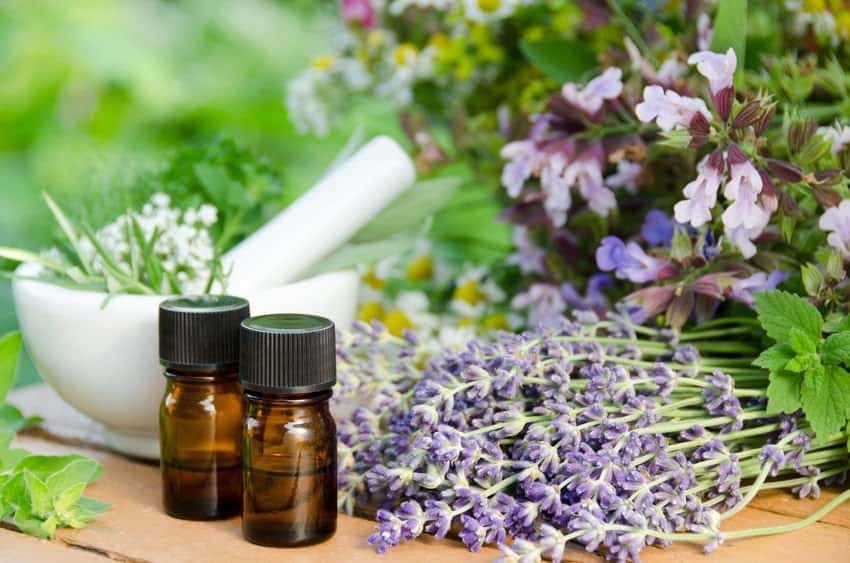
1. Vetiver
Obtained from the roots of the Vetiver plant, Vetiver essential oil is packed with all sorts of antispasmodic and antiseptic properties. Most interestingly however, Vetiver is extremely famous for its low, earthy fragrance and woodsy scent commonly used as a base note in perfume making. I might be the first to discover this, but base note scents seem to be ideal for people with autism; they do make up almost this entire list after all. Apart from that, vetiver contains other properties that help stabilize emotions, balance the nervous system, calm the sensory system, promote tranquility and improve better sleep patterns.
2. Frankincense
Taken from the resin of the Boswellia sacara tree, Frankincense essential oil is wrought with anti-viral, anti-bacterial, anti-inflammatory and anti-tumor properties. In the case of ASD, it helps pregnant women manage it by treating infections and boosting the immune system. Similarly, the oil has been noted for its mental boosting capabilities which help kids with autism remain focused and reduce stress and anxiety levels.
3. Sandalwood
Know for its incredibly woodsy (told you so) and sweet smelling scent, Sandalwood essential oil is obtained through steam distillation from the mature roots of the Sandalwood tree. Aside from the distinct calming and relaxing effects, the oil has been used time and time again to enhance mental clarity and chase away negative thoughts. And when used topically, you can also take advantage of the anti-aging properties for healthier skin.
4. Lavender
Used worldwide for centuries, Lavender essential oil might just be the most popular and versatile substance on the planet. While Egyptians used it for mummification, Romans were literally neck deep in the stuff in their massive baths. When it comes to autism, the most obvious benefits encompass the calming and relaxing effects brought about by its sedative qualities. These help reduce anxiety and depression, emotional stress and reduce sleep disturbances. Similarly, lavender essential oil contains strong anti-inflammatory properties that help people with ASD heal repeated injuries and wounds.
5. Peppermint
Here’s another wildly popular and unbelievably versatile oil. Peppermint essential oil is perfect for dealing with autism due to its unrivaled cooling effects. But don’t let the menthol take all the credit, there’s something about the sweet smell that seems to improve mental focus and calm a troubled mind. Likewise, its antimicrobial properties help freshen bad breath, clear up digestive issues, soothe tired muscles and most importantly, clear the respiratory tract for easier breathing.
7 Best Essential Oil Recipes For Autism
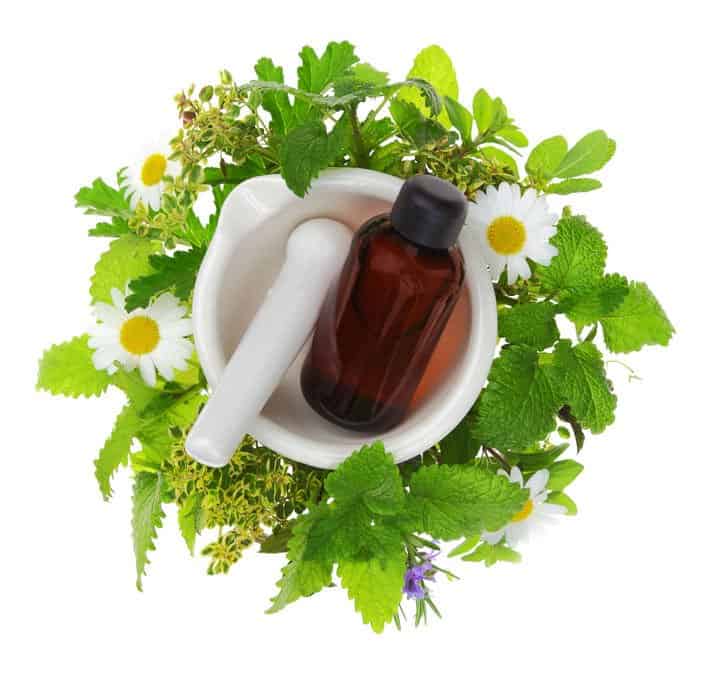
Recipe 1: Kiddies’ Bedtime Footsie Blend
Ingredients:
- 6 drops Vetiver
- 4 drops Cedarwood
- 2 drops Peppermint
- 1 drop Lavender
- 1 ounce fractionated coconut oil or sweet almond oil
- 30 ml roller bottle
Method:
Pop open the roll ball and add your essential oils drop by drop. Top up the rest with your selected carrier oil (coconut or almond), then replace the ball and shake the mixture to combine the oils. Foot reflexology is an exceptionally powerful tool for healing and restoring the internal systems of the body, especially for kids. When combined with essential oils, significant improvement can be seen in autistic children who tend to have unstable emotions. Roll the blend over your child’s feet during naptime and bedtime and be sure to cover with socks to avoid staining the sheets.
Recipe 2: Deep Jungle Diffusion Recipe
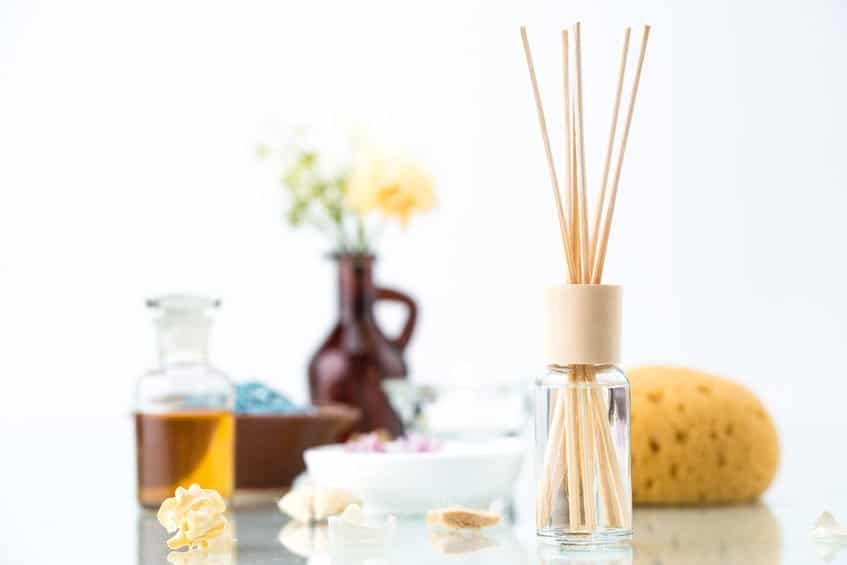
Ingredients:
- 3 drops Sweet Orange
- 2 drops Sandalwood
- 2 drops Frankincense
- 2 drops Vetiver
- Diffuser
Method:
While you can mix about 5 drops of an individual oil for specific purposes like better sleep or improve focus, I found that blending them all together combines all the best properties of each for an even more effective remedy. Just add the oils in your diffuser and diffuse normally throughout the day or night.
Recipe 3: Roll-On Focus Formula
Ingredients:
- 4 drops Peppermint
- 3 drops Lemon
- 1 drop Frankincense
- 2 drops Chamomile
- 30ml (1 ounce) Grapeseed Oil
- Roller bottle
Method:
Add in the essential oils in your 30 ml roller bottle and top up the remaining amount with grapeseed oil. Shake thoroughly and apply as rolls onto the back of the neck, behind the ears, underfoot, on temples and shoulders. If either you or your autistic child can’t seem to concentrate and maintain longer focus, just carry this formula everywhere.
Recipe 4: Refreshing Stress Busting Spray
Ingredients:
- 6 drops Mandarin or Orange
- 5 drops Ylang Ylang
- 3 drops Peppermint
- Half cup of distilled water
- Glass spray bottle
Method:
Combine all your ingredients in the glass spray bottle and shake it thoroughly to get the water oil solution as mixed up as can possibly be. Spritz the spray all around your house, your living area, kids bedrooms, clothes, and beddings. This mood enhancing spray reduces instances of aggression and promotes well-being, good feelings, and chill vibes.
Recipe 5: Soothing Milk Bath
Ingredients:
- 4 drops Lavender
- 6 drops Cedarwood
- 10 drops Vetiver
- 8 drops Patchouli
- 2 drops Chamomile
- 1 Cup whole milk
Method:
Draw a nice, warm bath and pour in all the above ingredients. Stir the bath well until all the oils are well mixed in. Soaking in this milk bath for about half an hour every evening is just what people with Autism need to clear the mind, relax the muscles, wash away the tension and promote a great night’s sleep. For young children, halve the above number of EO drops.
Recipe 6: Lavender Laundry Solution

Ingredients:
- 2 cups sea salt
- 2 tsp lavender plus 1 tsp any other essential oil you want
Method:
Shake up all the above ingredients in a massive mason jar and add about 2 teaspoons of the mix to your usual washing machine mix. This mix not only acts as a scent booster, but also promotes a sense of peace and tranquility all through the day.
Recipe 7: Instant Anxiety Relief Lotion
Ingredients:
- 5 drops Bergamot
- 3 drops Vetiver
- 2 drops Peppermint
- 1 drop Roman Chamomile
- 1 ounce (30ml) fractionated coconut oil
Method:
Mix all the above ingredients in a small non-reactive bowl. Apply a few drops of the above blend to the base of the neck, shoulders, back, and/or chest for immediate relief from stress and anxiety. The cooling effect of peppermint also helps keep the body temperature comfortable.
3 Home Remedies For Autism

While there are numerous interventions and alternative therapies for autism, very few of those are actually supported by scientific studies. However, these are some of the most recommended home remedies that most parents use to complement essential oils and other medical treatments and therapies.
a) Magnesium Supplements
Although a balanced diet is important for everyone, magnesium has specific relevance for people with autism spectrum disorder. Magnesium deficiencies often lead to similar symptoms of ASD such as rocking, teeth grinding, low attention span and poor concentration. Ensuring magnesium is a part of the person’s daily diet can help improve behavior.
b) Sugar and Gluten Free
While research is still ongoing, many believe that eliminating gluten, sugar and other processed foods can reduce the symptoms of autism. In fact, some claim that the symptoms could be moving towards normalcy. But again, no scientific research supports this.
c) Fish Oil
Packed with Omega-3 fatty acids, fish oil is incredibly beneficial and essential to the body’s normal development. Studies reveal that higher levels of Omega 3 actually increase socialization in people with autism and soothes hyperactive and disruptive behaviors.
Parting Shot
There you have it my loyal readers; everything you could possibly want to know about autism, and then some. Education is the most helpful form of treatment for autism. And thanks to this segment, you now know what to expect and are well equipped to deal with whatever may come your way. But please folks, it’s of the utmost importance to remember that autism is not a disease – it’s a lifelong disorder without a known cure.
As such, please don’t burden your loved ones with lengthy, life-sucking pharmaceuticals and elusive miracle cures with the hope of a full recovery. The best thing you can do is educate everyone around you about the condition and try to improve the quality of life of the affected person. Most individuals with autism actually consider themselves as normal as you and me rather than as impaired; which is what we should all do – view them as ordinary people who simply have a unique way of interacting with the world around them. After all, isn’t that just what autism really is?

